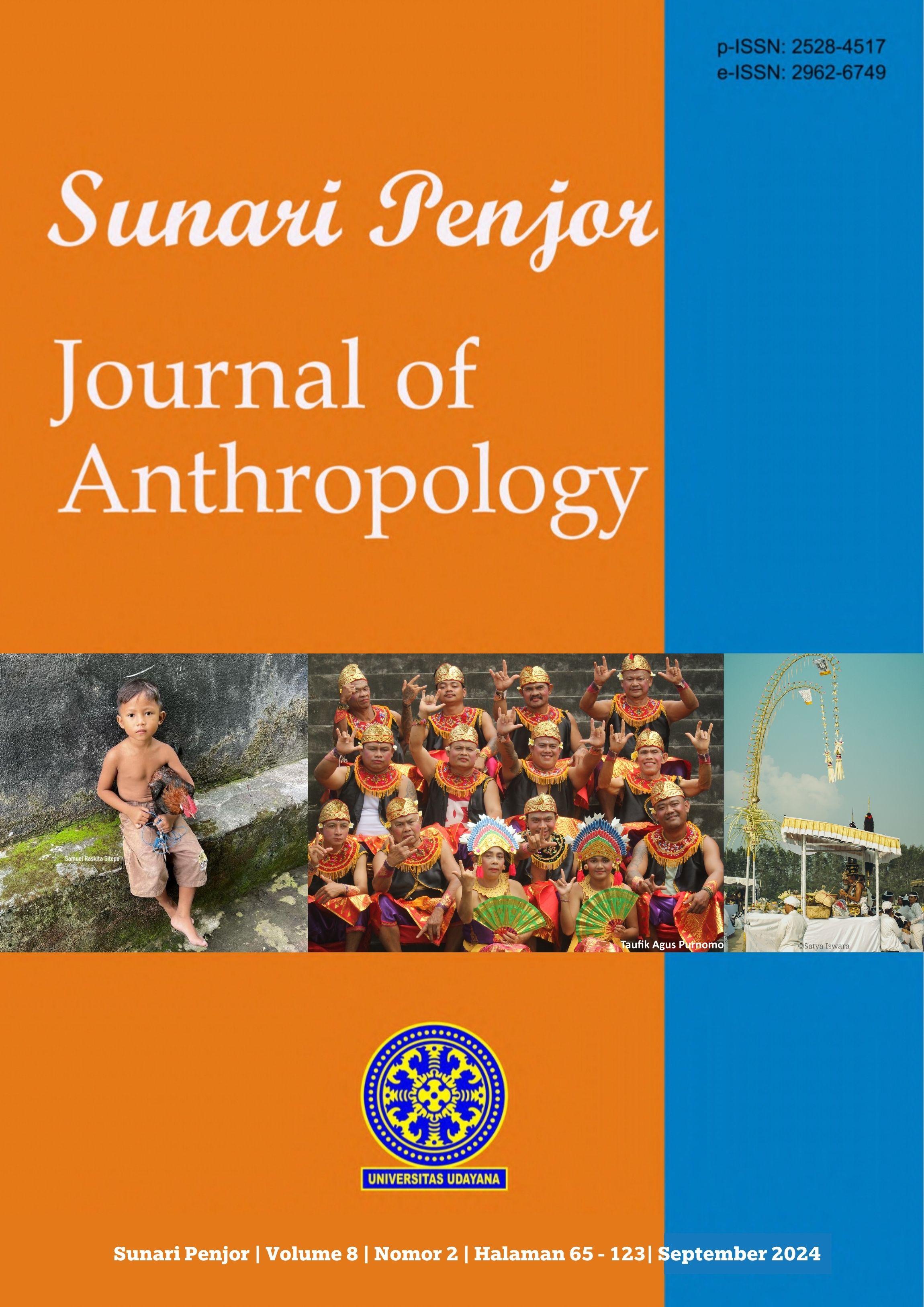Kemandirian Penyandang Disabilitas Netra melalui Program Kewirausahaan di Balai Rehabilitasi Sosial Penyandang Disabilitas Sensorik Netra Mahatmiya Bali
Abstract
Entrepreneurship training by the Social Rehabilitation Center for the Blind Sensory Disabled (BRSPDSN) Mahatmiya is to open an Artne Coffee Shop that is fully managed by blind people. Culinary products resulting from the training are sold at the shop at a price that is as you wish. In this study, the author is interested in further examining the role of BRSPDSN Mahatmiya in fostering an entrepreneurial spirit and its implications. The results of the study indicate that the Artne Coffee program plays an important role in empowering entrepreneurship among blind sensory disabled people. This program provides practical experience for beneficiaries in running a business, as well as increasing economic independence. The success of this program inspires other disabled people to explore their entrepreneurial potential. In addition, this program helps change public perceptions about blind sensory disabled people and creates an inclusive environment. The Artne Coffee program at BRSPDSN is a successful example of empowering entrepreneurship for people with disabilities. The implications of this program include inspiration for people with disabilities, changes in public perception, improving the quality of life, and becoming a model of empowerment that can be adopted by other institutions.
Downloads
References
Apsari, N. C.,& Raharjo, S. T. (2021). “Orang dengan Disabilitas: Situasi Tantangan dan Layanan di Indonesia”. Buletin Penelitian Sistem Kesehatan, 24(3), 159–169. https://doi.org/10.22435/hsr.v24i3.3069
Balcazar, F. E., Kuchak, J., Dimpfl, S., Sariepella, V., & Alvarado, F. (2014). “An empowerment model of entrepreneurship for people with disabilities in the United States”. Psychosocial Intervention, 23(2), 145–150. https://doi.org/10.1016/j.psi.2014.07.002
International Labour Organization. (2013). Mewujudkan Peluang Kerja yang Setara bagi Para Penyandang
Disabilitas Melalui Perundang-Undangan: Petunjuk Pelaksanaan/Kantor Perburuhan Internasional. Jakarta: International Labour Organization
Kementerian Sosial Republik Indonesia. (2012). Pedoman Analisa Kebutuhan Diklat. Jakarta: Kementerian Sosial
Republik Indonesia.
Maritz, A., & Laferriere, R. (2016). “Entrepreneurship and self-employment for people with disabilities”. Australian Journal of Career Development, 25(2), 45–54. https://doi.org/10.1177/1038416216658044
Mpofu, J., & Shumba, A. (2013). “Disabilities and Entrepreneurship in Makonde Rural Community in Zimbabwe”. Studies of Tribes and Tribals, 11(2), 135–144. https://doi.org/10.1080/0972639X.2013.11886675
Parker Harris, S., Renko, M., & Caldwell, K. (2014). “Social entrepreneurship as an employment pathway for people with disabilities: exploring political–economic and socio-cultural factors”. Disability & Society, 29(8), 1275–1290. https://doi.org/10.1080/09687599.2014.924904
Shaheen, G. E. (2016). “Inclusive Entrepreneurship: A Process for Improving Self-Employment for People with Disabilities”. Journal of Policy Practice, 15(1–2), 58–81. https://doi.org/10.1080/15588742.2016.1109963
Szaban, J., & Skrzek-Lubasińska, M. (2018). “Self-Employment and Entrepreneurship: A Theoretical Approach”. Journal of Management and Business Administration. Central Europe, 26(2), 89–120. https://doi.org/10.7206/jmba.ce.2450-7814.230
Undang-Undang RI No. 8 Tahun 2016 tentang Penyandang Disabilitas.














